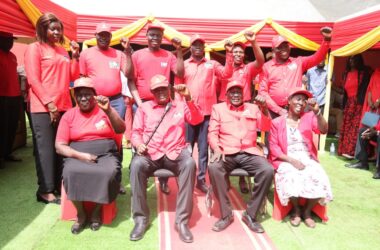By Deng Ghai Deng
State Community Policing Board has been urged to extend their cooperation with citizens in a bid to eliminate gang violence and reduce crime in Central Equatoria State.
Assistant Inspector General of Police (AIGP), Lt. Gen. Nichola Dimo Biajo, who also serves as the state Police commissioner, made the call on Friday during a quarterly meeting held in Juba.
The quarterly meeting brought together various security actors and stakeholders, where the Police Commissioner emphasized the importance of building trust between law enforcement and the community.
“There is a need for us to build trust, and to do that, we must work closely with the community so that we achieve our goal—a peaceful society free from crimes and gang violence. I encourage the members of the PCRC to continue their work and apply the knowledge gained from workshops on community policing,” Biajo said.
The meeting was attended by division commanders, sector commanders, and leaders of the Police Community Relations Committees (PCRC), alongside other key figures in the region’s security apparatus.
Peter Wani Elia, the Speaker of the Central Equatoria State Legislative Assembly, also underscored the significance of community policing in maintaining law and order.
“We need to strengthen community policing not only in Juba city but across all six counties of Central Equatoria State. When there is police presence, there is government presence, and where there is no police, it means there is no government. Implementing community policing across the state is crucial for maintaining law and order,” Elia stated.
The Deputy Speaker of the Central Equatoria State Legislative Assembly also stressed the importance of community policing and collaboration.
“A collaborative approach between the police and communities is key to overcoming the challenges we face. It’s not just about responding to crime, but about creating an environment where the people feel safe and engaged in the protection of their own communities.” Loro said.
The forum served as an important platform for reflecting on progress, with significant achievements highlighted, including increased security in areas where PCRCs have been established and the expansion of police presence. A key development was the replacement of sector commanders by national police officers, a move that is expected to facilitate closer collaboration between police and civilians to address security challenges.
The Police Community Relations Committees (PCRC), a program supported by the United Nations Development Programme (UNDP) with funding from Kingdom of the Netherlands, aims at boosting security and fostering cooperation between the police and local communities.




